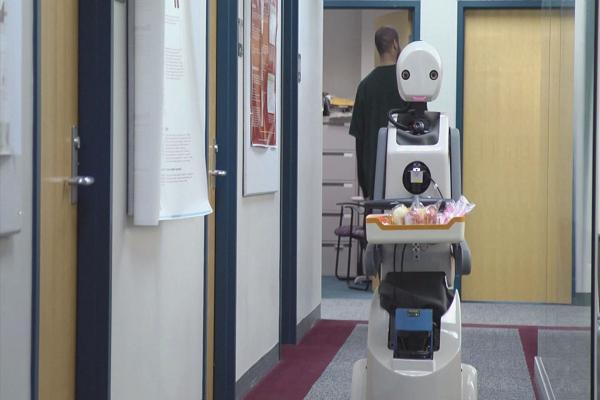A Forrester Research report expects intelligent agent to displace about 6-percent of positions within the next five years.
Within five years robots and so-called intelligent agents will eliminate many positions in customer service, trucking and taxi services, amounting to 6 percent of jobs, according to a Forrester report.
“By 2021, a disruptive tidal wave will begin,” said Brian Hopkins, VP at Forrester, in the report. “Solutions powered by AI/cognitive technology will displace jobs, with the biggest impact felt in transportation, logistics, customer service, and consumer services.”
Intelligent agents, chat bots and digital assistants include Amazon’s Alexa, Apple’s Siri, Alphabet’s GoogleNow and Facebook’s Messenger bots. They are powered by artificial intelligence and they can already understand a person’s behavior, interpret their needs and even make decisions for them.
AI-based services and apps will eventually change most industries, resulting in a redistribution of jobs, Forrester found. Self-driving cars, for example, will have wide-ranging impacts on both the auto and transportation industries.
Facebook and Google are soaking up top talent and building huge bodies of data to train algorithms that will power all kinds of new services, the report found. They are already able to take things like images and video and convert that “unstructured data” into insights, like labeling objects in images.
The bots of 2021 will be much better at understanding human language, and they will be better at learning from users and increasingly able to handle more complex scenarios. Those expanded cognitive abilities will make intelligent agents much more useful to people, and drive widespread adoption over the next three to five years, the report found.
Facebook and Google are right now in the process of creating a baseline set of artificial intelligence and cognitive services. By 2021, others will tap those tools to scale their business and steal customers from competitors, the report found.
Facebook is already enabling this. By opening up its Messenger application program interface earlier this year and continually expanding its developer tools, the company is making it easy for businesses to automate conversations with the over a billion people using the app every month. Messenger now has more than 33,000 bots, helping companies to automate once costly back-office processes. For example, On Monday Facebook vice president of messaging products David Marcus announced new tools to enable bots to accept payments inside the app.
http://www.cnbc.com/2016/09/12/ai-will-eliminate-six-percent-of-jobs-in-five-years-says-report.html


Paranoia
Agility. Robots need agility to truely function independently,engineering designs will remedy that over time.
In the past new machinery has liberated work force from physical to more mental labor.. but this time it is not quite that easy. Humans are evolving slowly and the educational system is evolving even more slowly. There isn’t enough brain capacity for the masses to climb up much higher on the mental ladder at this point. We already have plenty of people who aren’t quite mentally equipped to do their jobs and if we push the ‘mental requirements’ any higher we are easily leaving 15-20% of people behind by going into a direction where they cannot follow.
A bit faster than I would expect things to move, but no major arguments from me. I’d say 8-12 years to reach those numbers but I am pulling those figures totally out of my arse. Personally I do think it’s better if it happens fast. The slower it happens the more time will be wasted by politicians and the slower we get to restructuring the entire economy. Still, 6% in just 5 years seems surprisingly fast.
Robots’ taking our jobs are predicted to take place in computer, mathematical, architecture, and engineering related fields, with a gain of 2 million jobs in related industries by 2020, along with a loss of 7.1 million jobs in white collar jobs, such as office and administrative occupations. http://futurism.com/will-artificial-intelligence-take…/